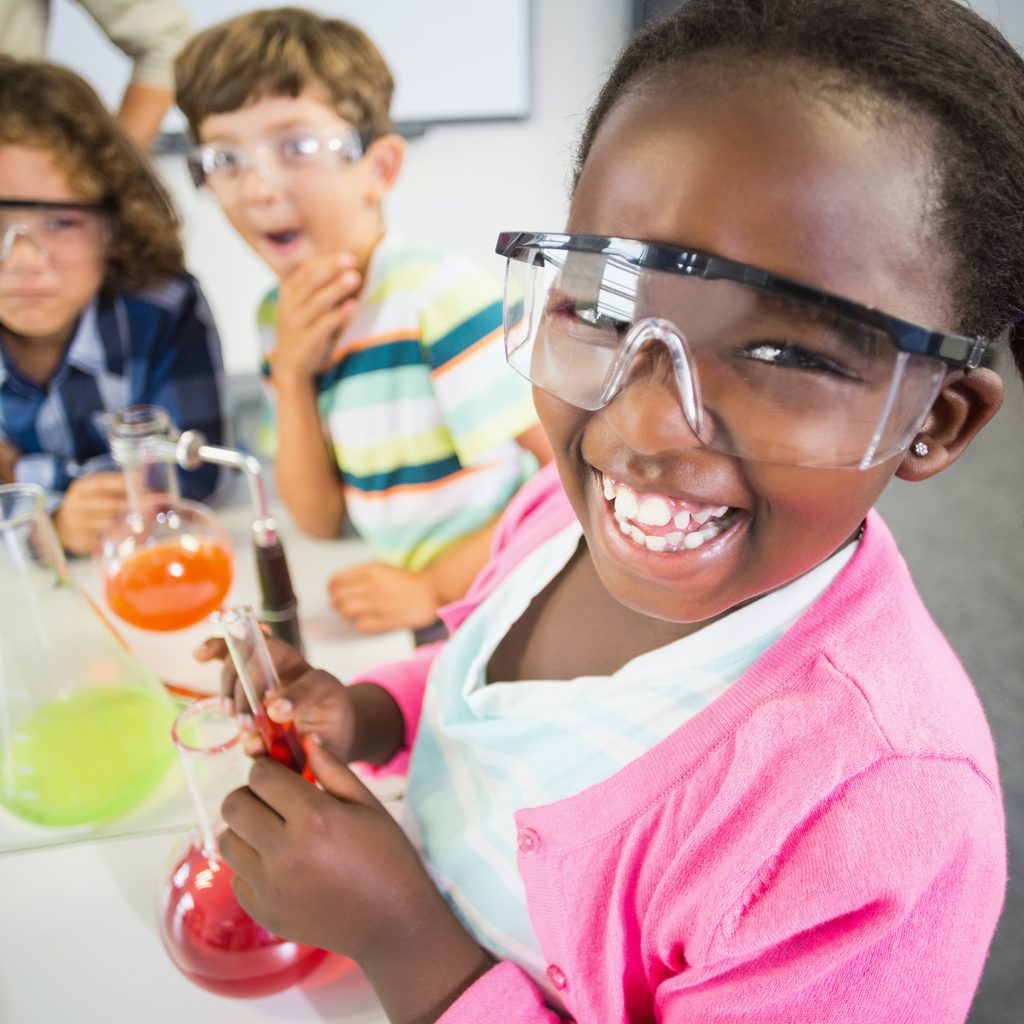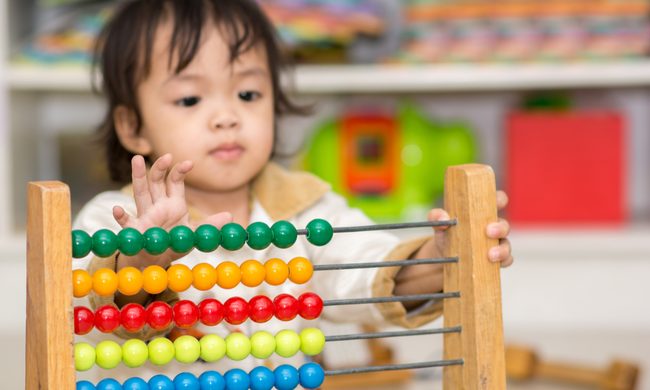Coming up with science lessons for kids can sound like a daunting task at first. You’re not a professor, right? Thankfully, science for kids is actually one of the easiest and most fun things to do with your kiddos!
Science lessons for kids are all around us in our everyday life and can be as easy as asking “why” about the weather, an animal they see in the park, a toy they dropped, or their body. We’ve come up with answers to your FAQs and ideas for easy science lessons for kids below, so you’ll be ready to have fun with your kids while learning together.
How do you explain science to a child?
Science is such a broad word that it can mean almost anything. Computer science, animal science, physical science, environmental science, social science, chemical science, health science…. — the list goes on and on because the sciences truly make up and explain our whole world.
In fact, that’s how you can explain science to a child: It’s a way for us to learn about how and why things happen the way they do. In all sciences, we observe the world and do experiments to figure out more about it and how it works.
How can I teach my child science at home?
Follow your child’s interests, like space or the body first, and then explore experiments and lessons about those. If you can’t think of any or have gone through those, look at the environment around you like what’s in your kitchen to show that science is part of their everyday life.
You can do lessons about the five senses, the classic vinegar and baking soda volcano, or even realize that science is part of things you may already be doing, like growing plants or baking cookies. Explain how heat bakes the cookies or what photosynthesis is, and explain the why about everything you do, and you’ll be teaching science.
How do you teach science in a fun way?
Science is an easy way to create fun! Bubbles teach surface tension, wind can power a pinwheel, puddles evaporate as the sun comes out… It’s all around us, and kids can get messy with it, explore it, and ask “why” all they want. It’s all about having activities to do and observing what’s already in your world, so there’s always more fun science to do. Kids can’t help but love science.

Elementary science lesson plans and easy science lessons
1. Gloves vs. mittens
Get these out from storage for a science lesson! There’s a lot more you can learn from a pair of gloves and a pair of mittens than you thought. This list of science ideas from Michigan State University Extension gives some excellent prompts about what to do.
Ask your child to see if it’s more difficult to pick something up with gloves or mittens and why. Have them tuck their thumbs inside the mittens and try to pick things up and think about animals that have paws. How do they pick things up without thumbs? Are there any animals that do have thumbs? You can ask about adaptation, evolution, species, and more with this line of thinking, too.
2. Paper airplanes
Which kinds of paper make faster paper airplanes? What kinds of throws fly longer? What kinds of folds are most effective? Keep experimenting and learn about trial and error.
3. Evaporating water cup
This one is as easy as they come! Fill a paper cup with water and put it on a windowsill. Leave it there for a week and check it a couple of times a day and mark the levels. You can show how the level is decreasing from evaporation (explaining the concept of the water cycle), but they will also learn the science skills of observation and documentation in an experiment.
4. Baking bread
Any kind of baking is an excellent science lesson. Why do the ingredient amounts need to be exact and how do we measure? Why do we use heat? Why do we need wet ingredients instead of dry ones? Bread is especially interesting because of the rising element.
5. What floats?
Take a pot and fill it with water. See what you have around that you can experiment with. A wooden block? A plastic fork? Can you make a boat out of tinfoil and see if that floats? Keep experimenting!
As you can see, the science lessons you can teach your child this summer are endless. Start with these five lessons and you’ll probably come up with more fun science projects!




